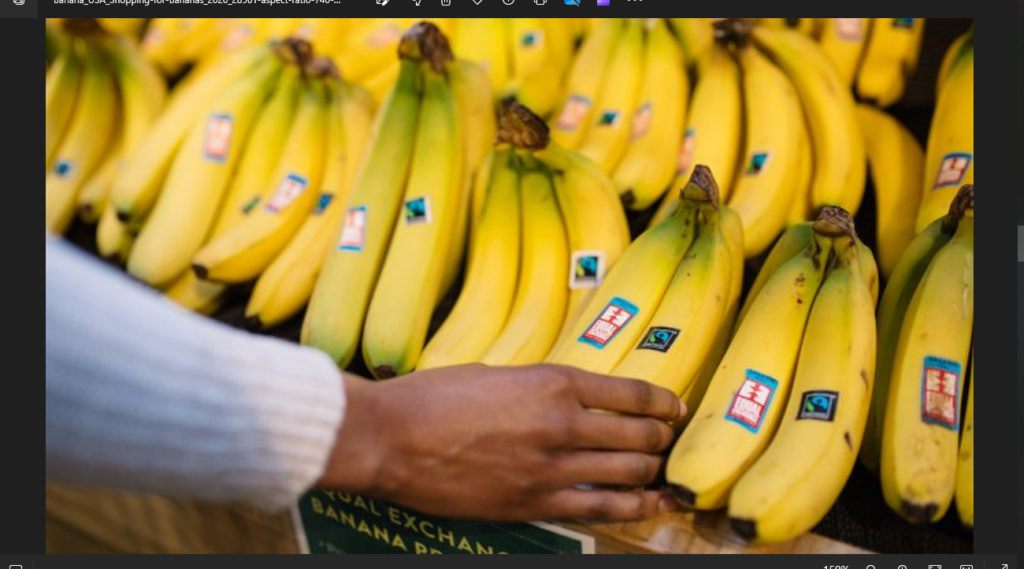FREDERIKSTED — The aisles of St. Croix supermarkets are a bit more sparse today, as the short-lived dockworkers strike has finally taken its toll on local grocery stores.
This strike heavily impacted the import of bananas, the most consumed fruit in the United States, according to Crop Trust.
“We have no bananas on St. Croix — the whole island,” a man behind the counter at DownTown supermarket on King Street in Frederiksted town told the Virgin Islands Free Press this morning.
“But we expect to see a shipment of bananas tomorrow (Monday October 14), Mr. Bader said.
The work stoppage also impacted the availability of other fruits and vegetables — such as imported cherries — and various products — such as baby formula.
The dockworkers strike affected the Caribbean — more than the United States mainland — because our region imports between 60 per cent and 80 per cent of its basic food requirements, according to the Food and Agriculture Organization (FAO).

The news that The International Longshoremen’s Association — which speaks for 45,000 dock workers across dozens of U.S. ports — would start to strike on on October 1, 2024 — sent shock waves through the Caribbean.
U.S. East Coast and Gulf Coast ports were reopened on October 4 after dockworkers and port operators reached a wage deal to settle the industry’s biggest work stoppage in nearly half a century, but clearing the cargo backlog will take time.
The strike ended sooner than investors had expected, weakening shipping stocks as freight rates were no longer expected to surge.
“The port strike ended fairly quickly, removing any significant downside risk to the economy this quarter,” said Ryan Sweet, chief U.S. economist at Oxford Economics.
At least 54 container ships had lined up outside the ports as the strike prevented unloading, according to Everstream Analytics, threatening shortages of anything from bananas to auto parts. More ships are sure to arrive.
Pricing platform Xeneta said it was likely to take two to three weeks for the normal flow of goods to be reestablished.
“Remember that ships keep calling, so it’s not just a matter of handling the ships already in line, but to work extra hard to run down the congestion before supply chains are rerunning,” Xeneta Chief Analyst Peter Sand told Reuters.
The International Longshoremen’s Association workers union and United States Maritime Alliance (USMX) port operators announced the deal. Sources said they had agreed a wage hike of around 62% over six years, raising average wages to about $63 an hour from $39 an hour.
The ILA launched the strike by 45,000 port workers, their first major work stoppage since 1977, on October 1, affecting 36 ports from Maine to Texas. JP Morgan analysts estimated the strike would cost the U.S. economy around $5 billion per day.
The disruption was a headache for Democratic President Joe Biden’s administration ahead of the Noveember 5 presidential election pitting Democratic Vice President Kamala Harris against Republican challenger Donald Trump.
It threatened to dent U.S. employment figures in a report due to be released shortly before Election Day.
REUTERS contributed to this report




